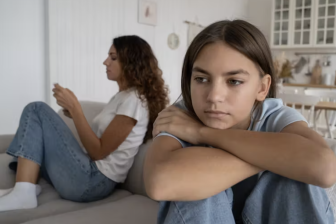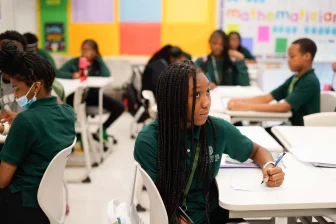
Social skills suffered during COVID but children in Northern Ireland are more resilient – report
Research into the impact of COVID on early-years classroom play in Northern Ireland points to a significant negative impact on children’s social skills and level of independence, but at the same time they have become more resilient.
That’s according to a collaborative study involving PlayBoard NI, Stranmills University College and the Controlled Schools’ Support Council, which also looked at COVID’s impact on youngsters’ engagement, social interaction and emotional well-being.
They carried out an online survey which focused on children in the Nursery and Foundation stages (years 1 and 2 of primary schooling). Nearly 300 teachers responded between January and March 2021.
More than half of respondents (58.6 per cent) thought restrictions had impacted negatively on children in terms of their social skills, their levels of independence, their ability to stay on task and overall enhanced anxiety. Over two thirds of teachers said restrictions, alongside intense cleaning regimes, had impacted negatively on the quality of play, resulting in more sterile play and learning spaces.
‘Increased levels of resilience’
But a sizeable minority (41.4 per cent indicated that children were more independent in terms of self-care routines, more settled in class, happier and more relaxed, and displayed increased levels of resilience and coping skills.
Jacqueline O’Loughlin, Chief Executive of PlayBoard NI, said: “As with so many areas of society, Covid-19 brought unprecedented challenges to early years education. Teachers at Nursery and Foundation stages were presented with the unenviable task of managing the risks posed by the pandemic while still ensuring a high-quality playful learning experience for children in practice.”
Key recommendations from the study focus on improving how play settings can continue to provide a high-quality fun but and learning experience, They include:
- Greater value to be assigned to play in the home and support parents to develop and extend play within the home environment
- more guidance on managing play during the pandemic
- prioritising outdoor play and outdoor learning in the post-pandemic school environment
- professional development in the early years
Early years teachers were praised for their high levels of creativity, improvisation and dedication to ensure that young children have, despite the challenges, largely continued to enjoy a stimulating, playful and nurturing learning experience. Almost two thirds of respondents (65.7 per cent) reported making greater use of the outdoors.
‘Children need play more than ever’
Dr Glenda Walsh, Head of Early Years Education at Stranmillis University College, said: “Although this study has been quite small in scale, it has generated some significant findings and recommendations about the importance of play both indoors and out for young children’s learning and development. The last year has certainly shown us that children need to play more than ever.”
Tracey Woods from the Controlled Schools’ Support Council said: “We are delighted to have contributed to this work which highlights the significant work of schools in facilitating playful learning opportunities that positively impact on children’s educational outcomes and their emotional health and well-being.”
Click here for the summary report and here for the full report.




